Graduate School of Social Work 2022–2023 Progress Report
In 2022–23, we continued to enhance our academic programs to best meet student and workforce needs, expanded our community engagement, and advanced social and racial justice through research. Learn more about our progress in the past year.
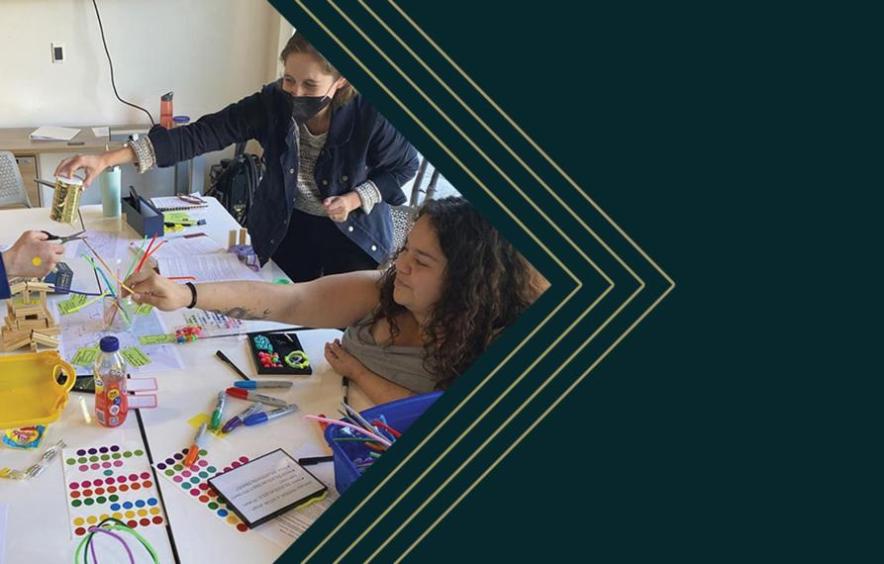
Strategic Goal: Engage
Community connections included partnerships that supported Latine youth leaders and ecojustice/climate action leaders in Denver Public Schools. Meanwhile, our research expenditures continued to lead the University.
-
Strategy | Reinforce and expand our bridge to and from the community
-
Supporting Development of Latine Youth Leaders: What if our society was led by those who are directly impacted by injustice? Through the local nonprofit Movimiento Poder, Latine youth leaders are working to mobilize collective power and make that vision a reality. This summer, the Graduate School of Social Work sponsored the Movimiento Poder Liberation Camp, welcoming 30 youth to the University of Denver campus to develop their organizing skills and transform as leaders.
-
Integrating Ecological Justice into Public Education: In partnership with Denver Public Schools, GSSW researchers are integrating climate action and ecological justice into education. The work includes collaborating with district educators to develop and implement a curriculum that will infuse humane and ecologically minded themes into established K-12 curricula.
-
-
Strategy | Advance training and knowledge that influence public policy
-
Addressing Climate Impacts on Mental Health: In May 2023, Associate Professor and Interim Dean Lisa Reyes Mason penned an op-ed for The Hill about the impact of climate change on mental health. She called for innovative solutions that expand our approach to mental health care, including a focus on prevention and approaches grounded in community, mutual care and whole-person support for wellness and resilience. The bipartisan Community Mental Wellness and Resilience Act of 2023 was one such solution, she wrote.
-
Protecting People with an Eating Disorder: During the 2023 legislative session, Assistant Professor Erin Harrop testified for two Colorado bills related to eating disorders and weight stigma — SB23-176: Protections for People with an Eating Disorder and SB23-014: Disordered Eating Prevention — both of which passed and were signed by the governor. Among other things, SB23-176 prohibits use of the body mass index, ideal body weight or any other standard requiring an achieved weight when determining medical necessity criteria or appropriate level of care for an individual with a diagnosed eating disorder. SB23-014 establishes a disordered eating prevention program in the Department of Public Health and Environment. Harrop teaches GSSW’s EmBODYed practice course, which addresses how social workers should respond to weight stigma to help promote more body equity.
-
Implementing Family Leave in Colorado: In 2019, Associate Professor Jennifer Greenfield authored a report on the potential economic impacts of paid family leave in Colorado. She also testified at the State Legislature numerous times in support of Colorado’s Family and Medical Leave Insurance Program (FAMLI), which voters approved in November 2020. Now, Greenfield is among researchers and policymakers invited to advise the state on implementation of FAMLI and discuss research needs related to the program. Greenfield’s ongoing policy and advocacy work has also included publishing op-eds and giving media interviews, including:
- The Hill: Crisis not averted — child care worries intensify
- U.S. News and World Report: The Cycle of Poverty and Its Traps That Keep You Poor
- 9 News: Rising inflation impacts food insecurity in Colorado
-
-
Strategy | Engage in scholarship and research that is driven by communities and rooted in social justice
-
Reimagining the Future of Social Change: Assistant Professor Sophia Sarantakos focuses their research, writing and organizing on how the field of professionalized social-change work — including social work — can be shaped into a tool in service of an abolitionist horizon. Sarantakos co-created and co-facilitates the Abolitionist Social Change Collective, which provides a virtual space for people engaged in all forms of paid and unpaid social-change work, as well as the Social Work Activist Collective, a new mass-mobilization platform for all laborers within professionalized social-change work. Sarantakos discussed their work in a Brave Ideas for Social Change podcast episode.
-
Advancing Antiracist and Antioppressive Research: As members of the editorial board for the Journal of the Society for Social Work and Research, Associate Professors Inna Altschul and Anamika Barman Adhikari and Professor and Vice Provost for Faculty Affairs Jenn Bellamy helped to set an antioppressive and antiracist research agenda for the international research publication. The work has included a new mission for the journal, a commentary proposing a path for advancing antiracist and antioppressive research, and a special section on antiracist research. Bellamy discussed advancing antiracist and antioppressive research in a Brave Ideas for Social Change podcast episode.
-
Exploring Experiences with Permanent Supportive Housing: In partnership with a Colorado permanent supportive housing (PSH) project, its residents, and an architecture firm that designs PSH, 2023 doctoral graduate Danielle Littman used novel research methods such as game play to explore young adults’ experiences and outcomes associated with moving into PSH. The architects are already applying Littman’s findings to other trauma-informed PSH projects. Littman’s dissertation research was recognized with a 2023 Society for Social Work and Research Doctoral Fellows Award.
-
-
Strategy | Continue our influential and innovative research legacy
-
Working to Prevent Suicide: To help facilitate conversations about suicide, Associate Professor Stacey Freedenthal wrote the new book “Loving Someone with Suicidal Thoughts: What Family, Friends, and Partners Can Say and Do” (New Harbinger Publications, 2023). The book covers signs of suicide risk, shares treatment options and answers a range of common questions.
-
Increasing Research Expenditures: In 2022–23, GSSW researchers had 65 grants totaling $12.8 million in research expenditures — up from $11.8 million the previous year and the most of any division at the University. Funded projects ranged from an evaluation of the Denver Basic Income Project at the local level to an international U.S.–Sweden study of substance use treatment. With more than $6 million in awards, the University’s top-funded investigator was Research Professor Robin Leake, executive director of GSSW’s Butler Institute for Families.
-
Improving the Quality of End-of-Life Care: Funded by the National Institutes of Health, Associate Professor Kaipeng Wang is studying death attitudes and advanced-directive completion among older Chinese Americans — the fastest growing and the second largest immigrant population in the United States. Advance-directive completion is associated with improved quality of end-of-life care, reduced use of aggressive and costly medical treatments, lower likelihood of in-hospital deaths, and lessened decisional burden for health care surrogates. However, older Chinese Americans have significantly lower advanced-directive completion rates than the older American population in general. Wang’s long-term goal is to develop and implement culturally sensitive psychosocial interventions targeting key factors, such as death attitudes, to increase advanced-directive completion among older Chinese Americans. Wang discussed his research in a recent Brave Ideas for Social Change podcast episode.
-
$12.8 Million GSSW’s research expenditures increased from $11.8 million in 2021–22 to $12.8 million in 2022–23.
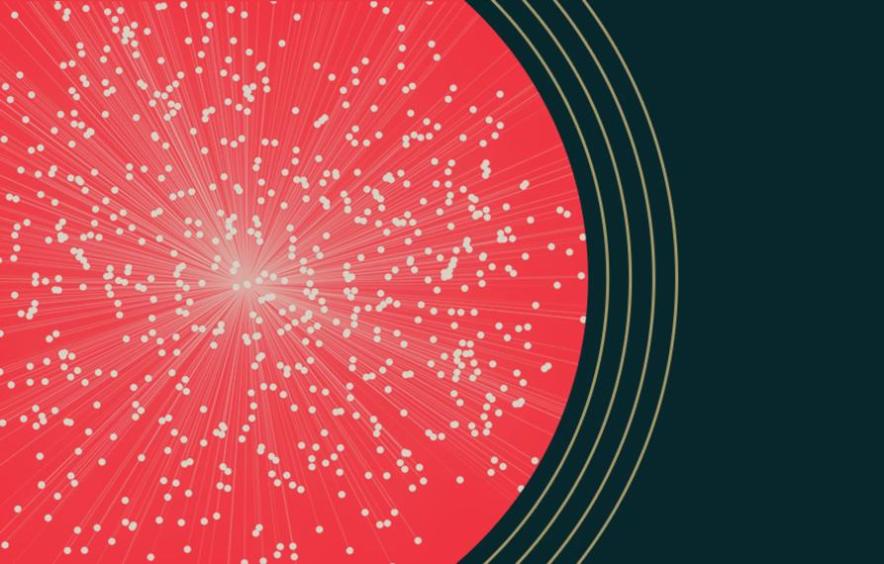
Strategic Goal: Envision
We continue to nurture meaningful relationships with our alumni, who represent the vast field of social work and readily share their experience and knowledge with current students. As Health Futures Fellows, GSSW alumni, faculty and students applied foresight techniques to reimagine the future of social work.
-
Strategy | Invest in meaningful relationships with alumni
- Nurturing Relationships with Alumni: In the past year, 1,465 GSSW alumni engaged with the school, including 331 newly engaged alumni. Alums participated in a wide variety of alumni and career programming, including:
- 3 virtual Lunch & Learns focusing on rural social work, program development and the aging population;
- 2 career conversations featuring alumni expertise in library social work and school social work;
- 2 in-person alumni/student networking events; and
- the school’s 2nd-annual three-part interdisciplinary Alumni Panel Series, which included sessions on the Colorado Coalition for the Homeless, refugees and mental health, and an introduction to Eye Movement Desensitization and Reprocessing (EMDR).
- Nurturing Relationships with Alumni: In the past year, 1,465 GSSW alumni engaged with the school, including 331 newly engaged alumni. Alums participated in a wide variety of alumni and career programming, including:
-
Strategy | Advance and celebrate the uniqueness of our school
- Updating Brand Standards: The University of Denver refreshed its brand in fall 2022, including an updated logo, new fonts and expanded color palette. GSSW began updating its marketing portfolio to align with the University’s new standards.
- Supporting Enrollment Goals: GSSW’s communications and marketing team launched a new blog intended to increase admission inquiries by answering prospective students’ common questions about the social work profession, education and careers.
-
Strategy | Illuminate the vast fields of social work practice and impact in the global community
- Reimagining Social Work’s Future: GSSW’s Health Futures Fellows — part of the Social Work Health Futures Lab funded by the Robert Wood Johnson Foundation — wrapped up 18 months of foresight training. They also produced a blog, practiced applying foresight tools, presented at national meetings, contributed a chapter to a forthcoming book on antiracism in social work, wrote an article on an ethical tool for social workers to use when considering integration of technology in their practice, and authored an article on Afrofuturism as an emerging lens for the social work profession.
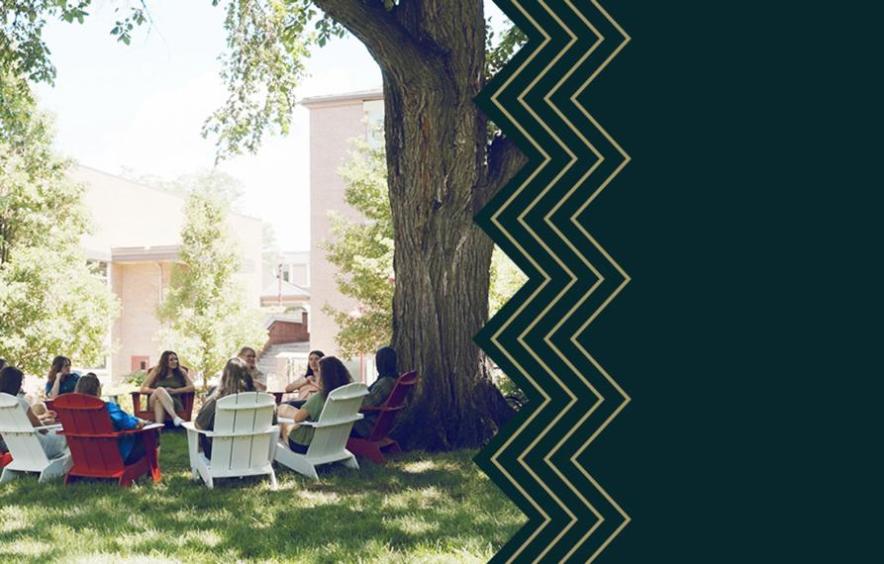
Strategic Goal: Learn
Informed by our students and our community, we continued to innovate in how and what we teach. We evolved our MSW program in the past year and continue to emphasize training to serve in rural and other underserved communities.
-
Strategy | Create a dynamic learning experience for all members of our community and prepare students to lead in a diverse society
-
Fostering Healthy Futures: Developed by Professor Heather Taussig, the Fostering Healthy Futures (FHF) youth mentoring program celebrated its 20th anniversary in 2023. The positive youth development program uses mentoring and skills training to empower youth who have been involved in the child welfare system. Taussig has run three randomized controlled trials of the intervention, funded by more than $7 million in grants, including $4 million in federal funding. FHF has served more than 1,000 children and youth, and the program has trained more than 400 social work, psychology and public health graduate students who have interned as mentors or assisted with research.
-
-
Strategy | Meet workforce needs through specialized skill-based training
-
Developing Colorado’s Behavioral Health Workforce: GSSW received $1,014,000 from the Colorado Department of Higher Education to fund scholarships for students specializing in behavioral health and demonstrating financial need. The scholarship is an extension of the CLIMB@DU program, which aims to improve the availability of integrated behavioral health services to Coloradans living in rural, vulnerable and/or medically underserved communities throughout the state and the Four Corners region. CLIMB programs have made a noteworthy impact on Colorado’s behavioral health workforce, with 80% of CLIMB alumni remaining in Colorado and the Four Corners region and working behavioral health.
-
Offering MSW Specialization Pathways: In January 2023, GSSW announced the introduction of flexible MSW specialization pathways. Rather than having to commit to a single concentration specialty, MSW students can now select from a wide variety of courses to create a specialization that suits their particular interests and career goals. They can choose from eight pathways, each with multiple potential focus areas, or they can create an entirely new pathway that works best for them. The school also introduced a part-time option for its Denver Campus MSW programs.
Read More
-
Training Future Social Workers: Through field internships, GSSW students annually contribute 557,550 hours to more than 750 community organizations, including Maria Droste Counseling Center — a training ground for students with mental health and macro specializations.
-
MSW students learn to build community at SAME Café, a Denver fair-exchange restaurant that is one of GSSW’s 700+ field education partners.
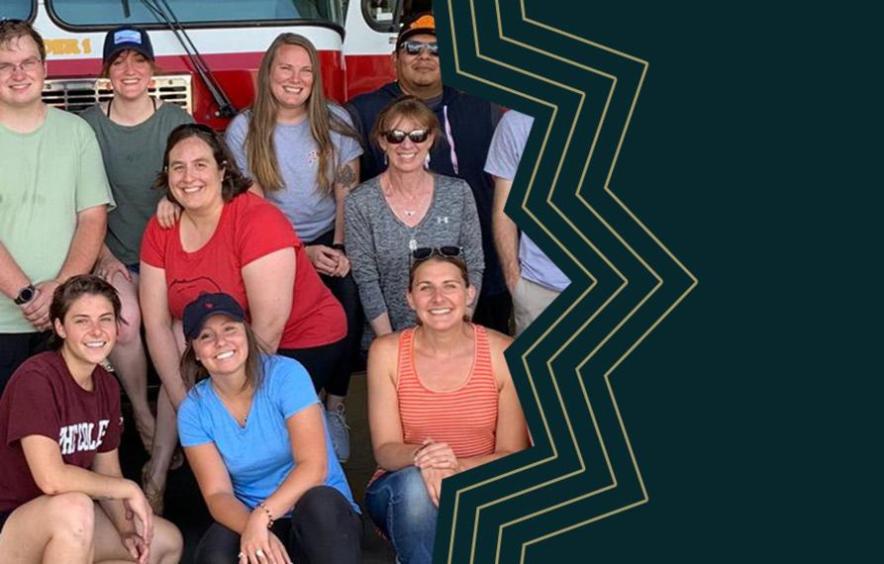
Strategic Goal: Transform
Our operations and academic programs continued to focus on diversity, equity, inclusion and justice. Our Four Corners MSW Program made several changes to better meet the needs of Indigenous students and to center Indigenous knowledge. Faculty research has focused on subjects such as weight stigma and historical trauma.
-
Strategy | Challenge and disrupt systems of oppression within and outside our school
-
Recognizing Weight Stigma in Social Work: Assistant Professor Erin Harrop uses art, storytelling and mixed-methods research to tell patient-centered stories about health care experiences — particularly the experiences of people with marginalized identities. A focus of their research is to increase awareness of weight stigma in social work and acknowledge weight as an important aspect of diversity. Harrop discussed weight stigma in a Brave Ideas for Social Change podcast episode.
-
Healing through Storytelling: Associate Professor Ramona Beltrán works alongside institutions and Indigenous communities to spotlight solutions that are present in creative and culture-driven modalities. In a Brave Ideas for Social Change podcast episode, she discussed her scholarship around historical trauma and healing, which is shaping global health futures by highlighting the role of storytelling in articulating creative responses to our most pressing issues.
-
-
Strategy | Increase the accessibility of social work higher education for those who have historically been excluded
-
GSSW’s Four Corners MSW Program centers Indigenous knowledge to ensure that all Four Corners faculty and students have the understanding and cultural humility needed to work effectively with Indigenous populations, and to ensure that the program meets the needs and expectations of Indigenous students. Recent changes have included enhancements across the curriculum, such as adding more readings from Indigenous scholars and inviting guest speakers from nearby Indigenous communities to share their knowledge in every class (and compensating them for their time and expertise). The program also signed a memorandum of understanding with the Ute Mountain Ute Tribe, whose tribal council will now approve internship agreements.
-
Adjunct Instructor Jenn Calabrese, BA & MSW ’10"When I was young, I always dreamed of attending DU. Like most young people, I faced adversity that made me wonder if I would make it. I remember when I was accepted, and how powerful that was. I really valued my time as an undergraduate student and was so grateful to have taken advantage of a 3+2 program. Today, I find myself teaching in the same school that shaped and grew me into the professional I am. I carry this sense of gratitude into my classroom always."
MSW@Denver Alumni Spotlights
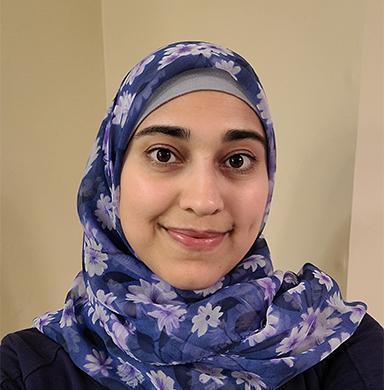
Multicultural Social Work
2022 MSW@Denver grad Shaema Imam plans to work as a therapist with older immigrants, particularly those with Muslim and Asian identities.
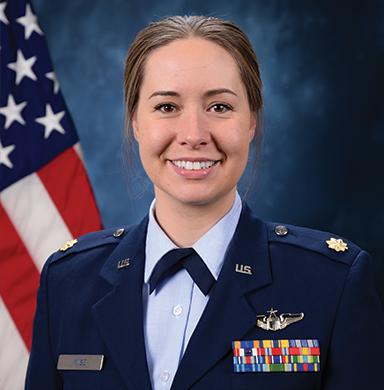
Balancing Accountability and Empathy
Becoming a social worker has helped U.S. Air Force Major Kari Jukkola, MSW ’23, to be a better leader and commander.




